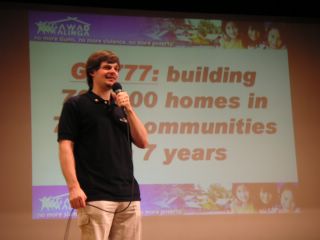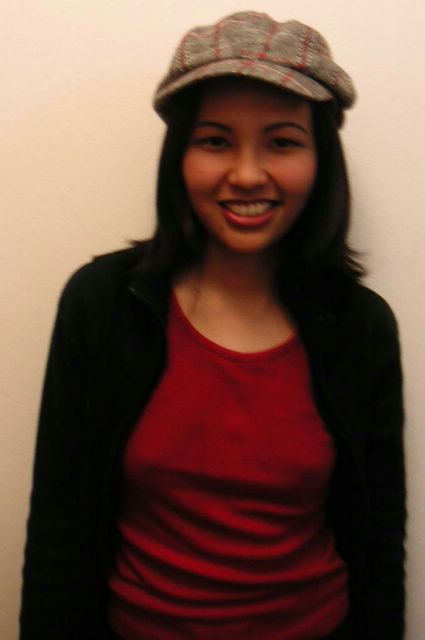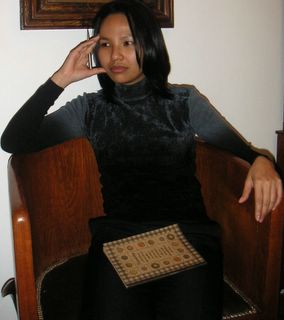The English poet John Milton wrote that those who serve also stand and wait. I think I would go further and say that those who wait render the highest form of service. Waiting requires more discipline, more self-control and emotional maturity, more unshakable faith in our cause, more unwavering hope in the future, more sustaining love in our hearts that all the greatest deeds of deering-do go by the name of action.
Waiting is a mystery - a natural sacrament of life - there is a meaning hidden in all the times we have to wait. It must be an important mystery because there is so much waiting in our lives.
Everyday is filled with those little moments of waiting (testing our patience and our nerves, schooling us in self-control.) We wait for meals to be served, for a letter to arrive, for a friend to call or show up for a date. We wait in line at cinemas and theaters, concerts and circuses. Our airline terminals, railway stations and bus depots are great temples of waiting filled with men and women who wait in joy for the arrival of a loved one - or wait in sadness to say goodbye and give the last wave of hand. We wait for springs to come - or autumn - for the rains to begin and stop.
And we wait for ourselves to grow from childhood to maturity. We wait for those inner voices that tell us when we are ready for the next stop.
We wait for graduation, for our first job, our first promotion. We wait for success and recognition. We wait to grow up - to reach the stage where we make our own decisions. We cannot remove this waiting from our lives. It is a part of the tapestry of living - the fabric in which the threads are woven to tell the story of our lives.
Yet current philosophies would have us forget the need to wait "grab all the gusto you can get." So reads one of America's greatest beer ads - get it now! Instant pleasure, instant transcendence. Do not wait for anything. Life is short - eat, drink and be merry because tomorrow you will die.
And so they rationalize us into accepting unlicensed and irresponsible freedom - pre-marital sex and extra-marital affairs - they warn against attachments and commitments - against expecting anything of anybody, or allowing them to expect anything of us - against dropping any anchors in the currents of our life that will cause us to hold and wait.
This may be the correct prescription for pleasure - but even that is fleeting and doubtful - what was it Shakespeare said about the mad pursuit of pleasure - "Past reason hunted, and once had, past reason hated." Not if we wish to be real human beings, spirit as well as flesh, soul as well as heart, we have to learn to wait. For if we never learn to wait, we will never learn to love someone other than ourselves.
For most of all waiting means waiting for someone else. It is a mystery, brushing by our face everyday like a stray wind of leaf falling from a tree. Anyone who has loved knows how much waiting goes into it - how much waiting is important for love to grow, to flourish through a lifetime.
Why is this? Why can we not have it right now what we so desperately want and need? Why must we wait - two years, three years - and seemingly waste so much time? You might as well ask why a tree should take so long to bear fruit - the seed to flower - carbon to change to diamond.
There is no simple answer - no more than there is to life's other demands - having to say goodbye to someone you love because either you or they have made other commitments; or because they have to grow and find the meaning of their own lives - having yourself to leave home and loved ones to find your own path - goodbyes, like waiting, are also sacraments of our lives.
All we know is that growth - the budding, the flowering of love needs patient waiting. We have to give each other a time to grow. There is no way we can make someone else truly love us or we them, except through time.
So we give each other that mysterious gift of waiting - of being present without asking demands and rewards. There is nothing harder to do than this. It truly tests the depth and sincerity of our love. But there is life in the gift we give.
So lovers wait for each other - until they can see things the same way - or let each other freely see things in quite different ways. There are times when lovers hurt each other and cannot regain the balance of intimacy of the way they were. They have to wait - in silence - but still present to each other - until the pain subsides to an ache and then only a memory and the threads of the tapestry can be woven together again in a single love story.
What do we lose when we refuse to wait; when we try to find shortcuts through life -when we try to incubate love and rush blindly and foolishly into a commitment we are neither mature nor responsible enough to assume?
We lose the hope of truly loving or of being loved. Think of all the great love stories of history and literature - isn't it of their very essence that they are filled with this strange but common mystery - that waiting is part of the substance - the basic fabric against which the story of that true love is written.
How can we ever find either life or true love if we are too impatient to wait for it?
Waiting is a good thing only if something is worth waiting for.
How will you know if it's worth it? Gut feel.
What if you don't trust your gut? Pray. You will be enlightened. Trust me.
Is it wrong to expect while waiting? It's not wrong, but it will increase your chances of heartbreak and disappointment if things don't work out in the end.
Is it good to expect while waiting? It is better to HOPE.
What's the difference between hoping and expecting? HOPING means you're open to either side of the coin landing though you're more inclined to believe that things will turn out well. EXPECTING means you're thinking single-track...which won't do you much good at all.
What's the difference between waiting and expecting? EXPECTING is waiting for something TO DEFINITELY HAPPEN. WAITING is staying where you are, but not necessarily expecting something to happen definitely.
Do you need assurance from someone you're waiting for while you're waiting? Ideally, yes. But realistically, do you really want assurance from this person? It's so easy to just point at something and make that the reason why you're waiting ("Because she said..." "Because he told me that...").
With WAITING, all you really can rely on are 3 things: your gut feel, your heart and mind. Just YOURSELF, not anyone else.
So should you wait? What does your gut say? How does your heart feel? What does your mind think? If they're saying different things, keep asking yourself these 3 questions (and pray!) until you get a solid answer.
THEN you'll know if he or she is worth waiting for.




.jpg)
.jpg)